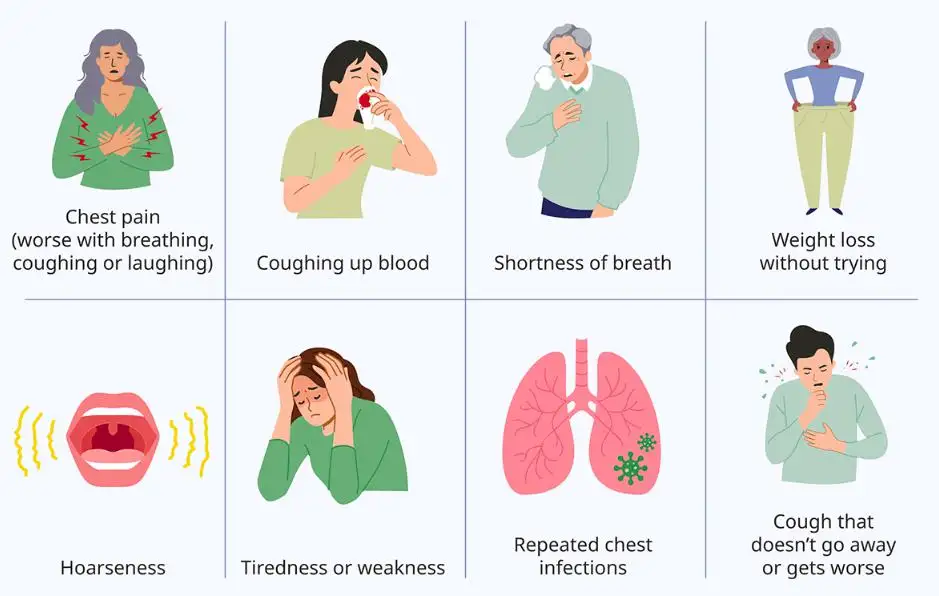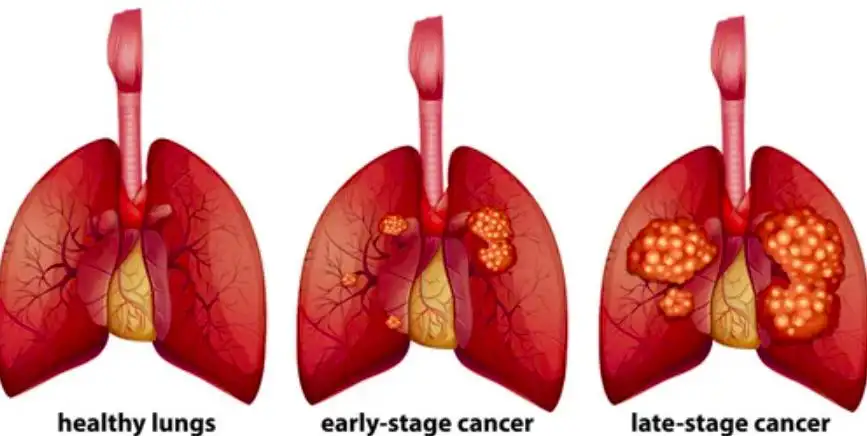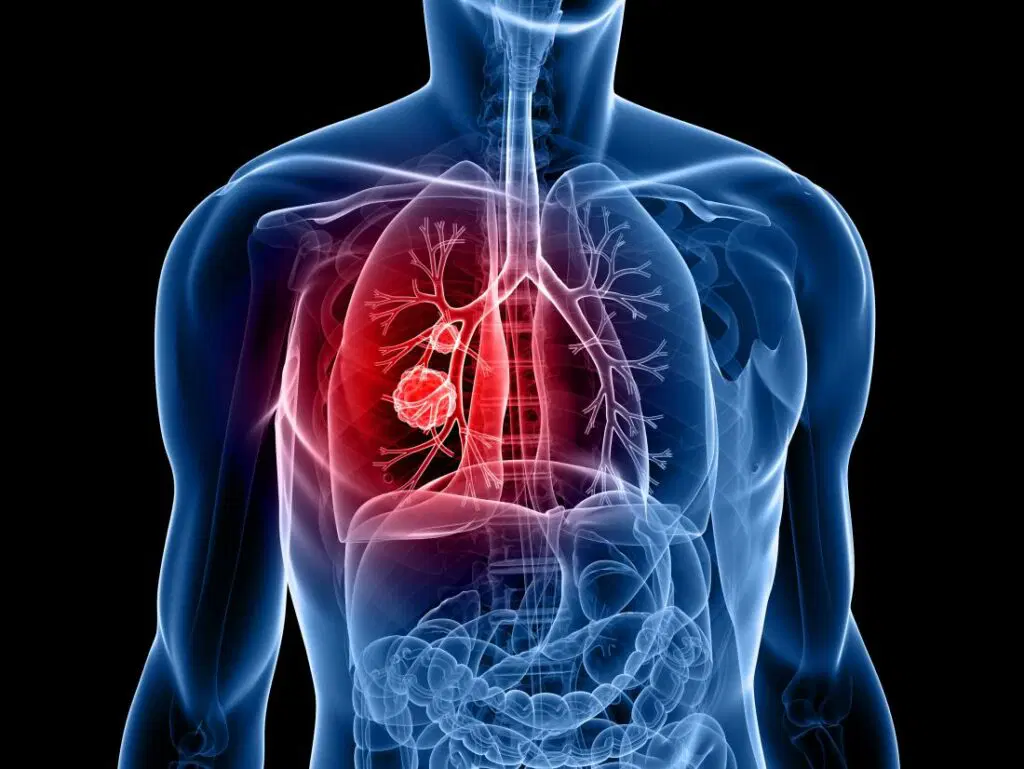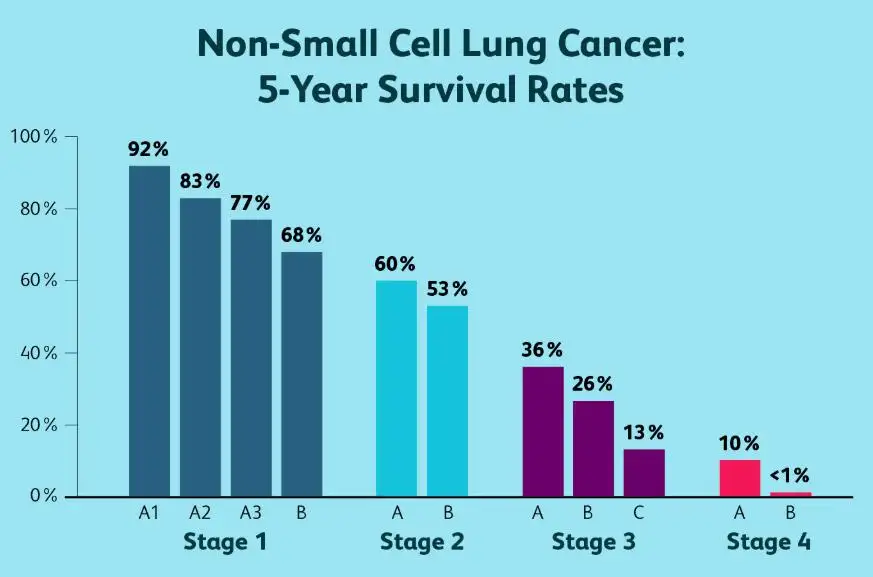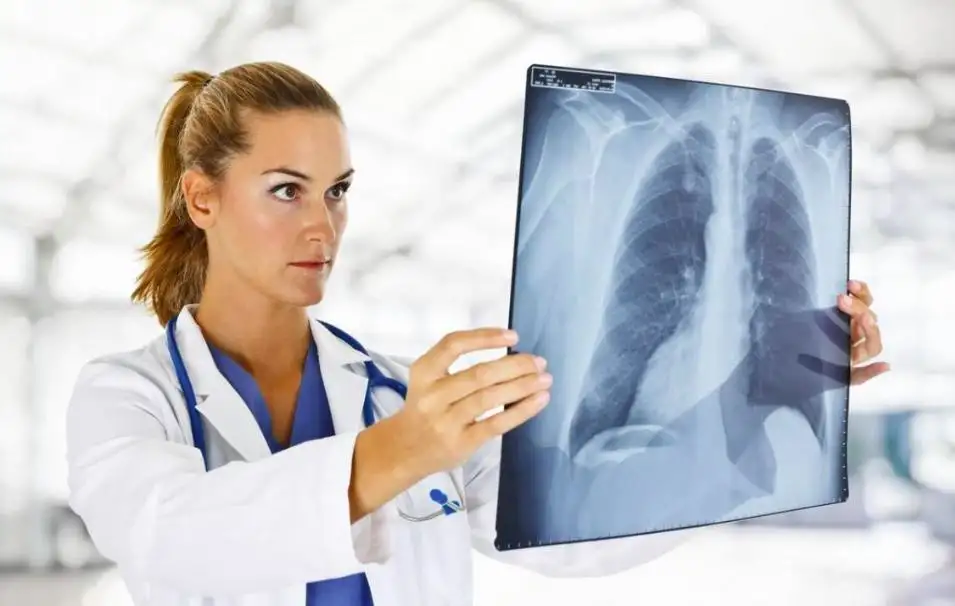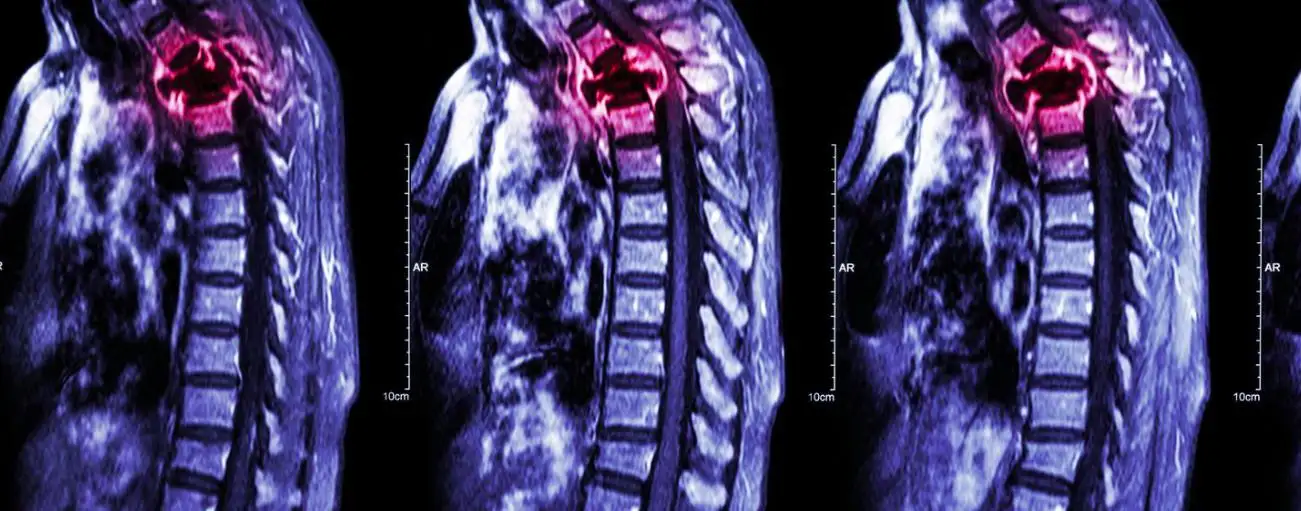Alternative Treatment for Lung Cancer Stage 4
Stagescancer.net - Being diagnosed with lung cancer stage 4 can be overwhelming, and traditional treatments such as chemotherapy and radiation can be particularly challenging for patients. Fortunately, alternative treatment options are available that can complement these standard therapies and provide compassionate care.
This section will explore some of the alternative treatment options available for lung cancer stage 4, such as herbal and nutritional supplements, mind-body approaches, and massage therapy. We will also look at how an integrative approach, which combines conventional and alternative treatments, can benefit patients.
If you or a loved one is dealing with lung cancer stage 4, this article aims to provide valuable information to help guide you towards making informed decisions about alternative treatment options that can support your overall treatment plan and improve your well-being.
Understanding Stage 4 Lung Cancer
Lung cancer can spread (metastasize) from the lungs to other parts of the body, a process known as metastatic cancer. Stage 4 lung cancer is the most advanced stage of the disease, indicating that cancer has spread to other areas of the body. The development and spread of cancer can vary widely among individuals.
Common sites of metastasis for lung cancer include the liver, bones, brain, and adrenal glands. While treatment may help slow the progression of the disease and relieve symptoms, stage 4 lung cancer is typically not curable.
As the disease progresses, patients may experience symptoms such as shortness of breath, fatigue, loss of appetite, weight loss, and persistent coughing. It is important to work closely with your medical team to manage symptoms and ensure the best possible quality of life.
Conventional Treatments for Stage 4 Lung Cancer
Conventional treatments such as chemotherapy, radiation therapy, targeted therapy, and immunotherapy are frequently used in the treatment of stage 4 lung cancer. Chemotherapy involves the use of drugs to destroy cancer cells, while radiation therapy uses high-energy radiation to kill cancer cells. Targeted therapy targets specific genes and proteins that allow cancer cells to grow, and immunotherapy utilizes the patient's immune system to fight cancer.
Traditional treatments can have side effects and may not be effective for all patients. It is important for patients and their medical teams to discuss the potential benefits and risks of conventional treatments and explore alternative treatment options.
Table: Conventional Treatments for Stage 4 Lung Cancer
| Treatment Type | Description | Potential Side Effects |
|---|---|---|
| Chemotherapy | Uses drugs to kill cancer cells. | Nausea, hair loss, fatigue, decreased blood cell count. |
| Radiation Therapy | Uses high-energy radiation to kill cancer cells. | Fatigue, skin irritation, cough, shortness of breath. |
| Targeted Therapy | Targets specific genes and proteins that allow cancer cells to grow. | Nausea, diarrhea, liver problems, skin rash. |
| Immunotherapy | Uses the patient's immune system to fight cancer. | Flu-like symptoms, fatigue, skin rash, diarrhea. |
Chemotherapy
Chemotherapy is typically administered intravenously or taken orally. This treatment is generally given in cycles, with periods of rest in between to allow the body time to recover. Some common chemotherapy drugs used for lung cancer include:
- Paclitaxel (Taxol)
- Carboplatin (Paraplatin)
- Cisplatin (Platinol)
Radiation Therapy
Radiation therapy can be administered externally or internally. External radiation therapy uses a machine to deliver radiation to the affected area, while internal radiation therapy involves placing radioactive material inside the body near the cancer cells. Some common radiation therapy techniques for lung cancer include:
- External beam radiation therapy
- Intensity-modulated radiation therapy (IMRT)
- Stereotactic body radiation therapy (SBRT)
Targeted Therapy
Targeted therapy drugs are designed to block the growth and spread of cancer cells. These drugs target specific genes or proteins that allow cancer cells to grow and divide. Some targeted therapies for lung cancer include:
- Erlotinib (Tarceva)
- Crizotinib (Xalkori)
- Gefitinib (Iressa)
Immunotherapy
Immunotherapy drugs work by boosting the patient's immune system to recognize and attack cancer cells. These drugs can be given intravenously or through injection. Some common immunotherapy drugs for lung cancer include:
- Pembrolizumab (Keytruda)
- Nivolumab (Opdivo)
- Atezolizumab (Tecentriq)
Integrative Approach to Treating Stage 4 Lung Cancer
Integrative medicine is a patient-centered approach that combines traditional cancer treatments with complementary therapies to provide a more holistic view of a patient's healthcare. This method focuses on treating the entire patient, not just their illness, with an emphasis on maintaining overall health and well-being.
Incorporating complementary therapies, such as massage therapy, acupuncture, and mind-body approaches, alongside conventional treatments such as chemotherapy and radiation therapy can provide relief from side effects, improve the effectiveness of standard treatments, and promote a sense of emotional and physical comfort and well-being for the patient.
Integrative medicine aims to provide supportive care, focusing on prevention, and addressing side effects while also having the potential to enhance the quality of life.
Complementary Therapies in Integrative Medicine
| Modality | Description |
|---|---|
| Acupuncture | A technique that involves inserting needles at specific points on the body to treat various symptoms, including pain and nausea. |
| Massage Therapy | Manual manipulation of soft tissue to promote relaxation, reduce pain and swelling, and improve range of motion. |
| Mind-Body Approaches | Practices such as yoga, meditation, and deep breathing help improve emotional well-being, reduce stress and anxiety, and promote relaxation. |
| Herbal Supplements | Natural plant-based products are used to treat various symptoms including nausea, fatigue, and pain. |
| Nutritional Supplements | Protein powders, vitamins, and other dietary supplements are used to provide additional nutrients and support for the patient's health and well-being. |
Integrative medicine brings a comprehensive and personalized approach to treating stage 4 lung cancer. By incorporating complementary therapies into the treatment plan, patients can experience a better overall quality of life while still receiving standard care. It's important to discuss with your medical team if integrative medicine is an option for you.
Diet and Nutrition for Lung Cancer Patients
Proper nutrition is essential for people with lung cancer. A balanced diet can help maintain strength, energy, and overall well-being. Here are some dietary recommendations to help support lung cancer patients:
- Choose a variety of colorful and nutrient-dense fruits and vegetables
- Incorporate lean protein sources, such as poultry, fish, beans, and tofu, into your meals
- Limit processed and fried foods, as well as sugary beverages
- Stay hydrated by drinking plenty of water
- Consider working with a registered dietitian who specializes in cancer care to develop an individualized nutrition plan
In addition to these recommendations, some lung cancer patients may benefit from additional nutritional support in the form of supplements. However, it is important to consult with your healthcare team before incorporating any supplements into your diet, as they may interact with medications or treatments.
The Role of Nutrition in Supporting Lung Cancer Treatment
In addition to supporting overall health, proper nutrition can also play a role in supporting lung cancer treatment. For example, some studies suggest that a diet rich in antioxidant-rich foods, such as berries and leafy greens, may help mitigate the side effects of radiation therapy. Additionally, maintaining a healthy weight through diet and exercise may improve treatment outcomes.
Ultimately, the goal of nutrition for lung cancer patients is to support overall health and well-being while also potentially supporting treatment. By incorporating a variety of nutrient-dense foods and working with healthcare providers to develop an individualized nutrition plan, lung cancer patients can support their body's ability to heal and thrive.
Herbal and Nutritional Supplements for Lung Cancer
There is growing interest in the potential benefits of herbal and nutritional supplements for individuals with lung cancer. Some supplements may offer support to the immune system, reduce inflammation, and help alleviate the side effects of conventional treatments.
Nutritional Supplements
When receiving cancer treatment, it's essential to maintain proper nutrition to support the body's healing process. Nutritional supplements, such as protein powders, vitamins, and minerals, can help to meet these needs.
One study found that omega-3 fatty acid supplements may enhance the effects of chemotherapy in lung cancer patients, although more research is needed to confirm these results.
Herbal Supplements
Herbal supplements are derived from plants and have long been used in traditional medicine. Some herbal supplements may have anti-inflammatory and antioxidant properties that could potentially benefit lung cancer patients.
| Herbal Supplement | Potential Benefits | Comments |
|---|---|---|
| Ginger | May help alleviate nausea and vomiting caused by chemotherapy | May interact with blood thinners |
| Turmeric | May have anti-inflammatory properties | May interact with blood thinners and chemotherapy drugs |
| Ginseng | May boost energy levels and reduce fatigue | May interact with some medications and cause side effects |
It is important to consult with a healthcare provider before taking any herbal or nutritional supplements, as they may interact with medications and cause unwanted side effects.
While herbal and nutritional supplements may offer potential benefits for lung cancer patients, it's important to remember that they are not substitutes for conventional treatments. They should always be used in conjunction with medical therapies and under the guidance of a healthcare professional.
Mind-Body Approaches to Ease Symptoms
Mind-body approaches such as meditation, yoga, and relaxation techniques are valuable components to enhance the overall well-being of individuals living with stage 4 lung cancer. These approaches have been shown to reduce stress levels and promote feelings of calmness and relaxation.
The benefits of engaging in these practices can improve symptom management and quality of life. For instance, meditation can reduce anxiety and provide emotional support, whereas yoga can enhance flexibility, strength, and balance. Relaxation techniques, on the other hand, can alleviate muscle tension, reduce heart rate, and promote peacefulness.
Regular practice of mind-body approaches can also help patients regain a sense of control over their body and mind while fostering self-awareness, acceptance, and resilience. These practices can complement conventional treatments to increase their effectiveness while supporting the physical and emotional healing process.
Acupuncture for Symptom Management
Acupuncture has been used for centuries to treat a variety of ailments, and it is also gaining popularity as a complementary therapy for cancer care. This ancient healing technique involves the insertion of thin needles into specific points on the body to stimulate energy flow, which can help alleviate pain and other symptoms.
In cancer care, acupuncture is effective in managing symptoms such as pain, fatigue, nausea, and vomiting. It may also help reduce anxiety, depression, and insomnia, all of which are common in cancer patients.
One study showed that lung cancer patients who received acupuncture in addition to conventional treatment reported less pain and better physical functioning compared to those who only received conventional treatment. Additionally, acupuncture has few side effects and is generally safe when performed by a licensed practitioner.
What to Expect During an Acupuncture Session
Your acupuncturist will begin by asking you about your symptoms and medical history. From there, you will lie down on a comfortable treatment table while your acupuncturist inserts needles into the specific points on your body that correspond to your symptoms. You may feel a slight tingling or dull ache, but most patients report feeling minimal discomfort during the treatment.
Acupuncture sessions typically last 30-60 minutes, and the number of sessions you will need depends on your individual symptoms and treatment plan.
It is important to note that while acupuncture can provide symptom relief, it is not a cure for cancer and should always be used in conjunction with conventional medical treatments.
Massage Therapy for Comfort and Relaxation
Living with stage 4 lung cancer can be a physically and emotionally challenging journey. Massage therapy offers a non-pharmacological approach to managing symptoms and promoting comfort and relaxation. It involves the manipulation of soft tissues in the body, such as muscles and connective tissues, to promote relaxation and alleviate tension.
Massage therapy can help manage symptoms commonly experienced by individuals with lung cancer, such as pain, anxiety, and fatigue. It can also improve sleep and enhance overall well-being. By promoting relaxation, massage therapy can reduce stress and improve the quality of life for patients undergoing cancer treatment.
Massage therapists who specialize in cancer care can provide compassionate and gentle massage therapy to individuals with lung cancer. These therapists understand the unique challenges of cancer treatment and can tailor massage therapy to the specific needs of each patient. They may use specialized techniques, such as gentle touch, to ensure maximum comfort and relaxation.
It's important to work with your medical team to determine if massage therapy is a suitable complementary treatment option for you. Depending on your specific condition and treatment plan, certain types of massage therapy may not be recommended. However, for many individuals with stage 4 lung cancer, massage therapy can be a valuable addition to their overall treatment plan.
Exercise and Physical Activity for Lung Cancer Patients
Regular exercise and physical activity are crucial for lung cancer patients receiving treatment. Incorporating exercise into the overall treatment plan has been shown to improve treatment outcomes and promote a better quality of life.
Patients should aim to participate in both aerobic and strength-training exercises, which can help with overall fitness and muscle strength. Physical activity can also help reduce symptoms of fatigue and breathlessness associated with lung cancer.
Patients need to work with their medical team to develop an exercise plan that is safe and appropriate for their unique situation. Patients should also listen to their bodies and take breaks as needed.
Incorporating exercise and physical activity into the treatment plan can provide numerous benefits for lung cancer patients, both physically and mentally.
Art and Music Therapy for Emotional Support
Being diagnosed with lung cancer can be a traumatic experience for patients, and the emotional impact can be just as challenging to cope with as the physical changes they may experience. That's why incorporating art and music therapy into the treatment journey could be highly beneficial in providing emotional support and expression.
Art therapy involves using various art mediums as a way of expressing emotions, addressing trauma, and processing feelings related to cancer treatment. Whether it's painting, drawing, or even sculpting, patients can utilize creative expression to work through challenging emotions and communicate non-verbally with their therapists or loved ones. Similarly, music therapy provides a way for patients to connect with their emotions and others by using music as a universal language to express themselves and communicate with their therapist or peers.
Both art and music therapy can help patients regain a sense of control and empowerment, which can often be lost during the cancer treatment process. These therapies can also improve overall mood and reduce anxiety, depression, and stress. Furthermore, they can be applied at any stage of cancer treatment and can even be continued after treatment has concluded, providing ongoing emotional support.
Incorporating art and music therapy into cancer treatment can benefit both the patient and their loved ones, as it offers a safe, creative, and supportive environment to express and process emotions and work towards healing.
Spiritual and Emotional Support for Lung Cancer Patients
Dealing with lung cancer can be overwhelming, affecting both the physical and emotional health of patients. Providing spiritual and emotional support is crucial in helping them cope with the challenges they face. Having a support system that includes counseling services and cancer support groups can help patients navigate through their journey with more ease and comfort.
At [Hospital/Institution Name], we offer a range of services to support our patients emotionally and spiritually. Our counseling services provide a safe space for patients to process their feelings and receive guidance through their journey. Additionally, our cancer support groups offer a community of individuals who understand what patients are going through, providing a space for them to connect and share experiences.
Aside from the services we offer at [Hospital/Institution Name], there are other spiritual practices that patients can engage in to support their journey, such as meditation, prayer, and journaling. These practices can help reduce stress and anxiety, promoting a sense of peace and calmness.
Alternative Therapies for Pain Management
For lung cancer patients experiencing pain, alternative therapies can offer non-pharmacological approaches to manage discomfort. Acupuncture, a traditional Chinese medicine, involves inserting small needles into the skin at specific points to stimulate the body's natural healing processes. Massage therapy can promote relaxation and alleviate pain by kneading the body's tissues and muscles.
Herbal remedies, such as ginger, may also provide relief from pain associated with lung cancer. Ginger has anti-inflammatory properties that can reduce pain and inflammation. Additionally, some patients have found relief from pain using mind-body techniques such as meditation and deep breathing exercises.
Alternative therapies should not replace conventional pain management strategies, and patients need to discuss all treatment options with their medical team. However, these non-pharmacological approaches can be used in conjunction with conventional treatments to provide a holistic approach to pain management for lung cancer patients.
Counseling and Supportive Care for Patients and Loved Ones
Lung cancer is a difficult diagnosis not only for the patient but also for their loved ones. Counseling and supportive care services can provide both emotional and practical support throughout the entire treatment process. They are designed to help patients and their families navigate the challenges of living with cancer, reduce anxiety, and improve overall quality of life.
Counseling services are provided by trained professionals who offer individual or group therapy sessions. These sessions can help patients and their loved ones develop coping strategies to address emotional distress and depression. Patients who can better manage their mental and emotional health are proven to benefit from enhanced physical well-being.
Supportive care services are designed to provide practical assistance, such as home care, financial aid, and transportation services. They can help to alleviate stressors that may impede treatment and recovery for patients and their caregivers.
It is important to recognize that cancer can be a long and challenging journey that will require a substantial amount of care and support. Counseling and supportive care services can help patients and their loved ones receive the support they need throughout the ups and downs of this difficult experience.
Working with Your Medical Team to Explore Alternative Treatment Options
When it comes to treating stage 4 lung cancer, it is essential to have a strong relationship with your medical team. This relationship is crucial for developing a comprehensive treatment plan that takes into account all aspects of your health and well-being. As a patient, it is important to communicate openly and honestly with your medical team and ask questions about all of your treatment options.
Your medical team can offer valuable insights into the various alternative treatments available, as well as the risks and benefits associated with each. By working together, you can make informed decisions about the best course of treatment for your specific situation.
Effective communication is key when working with your medical team. Be sure to ask questions and express any concerns you may have about your treatment plan. Your medical team can help you weigh the pros and cons of each treatment option and ensure that your care aligns with your personal goals and needs.
Remember that you are a crucial part of your medical team. By taking an active role in your care, you can help ensure that you receive the best possible treatment for your condition. So don't be afraid to speak up and work closely with your medical team to make informed decisions about your treatment options.
In summary, working with your medical team is essential when exploring alternative treatments for stage 4 lung cancer. Effective communication and informed decision-making are key to developing a comprehensive treatment plan that meets your unique needs and goals.
FAQ
What is stage 4 lung cancer?
Stage 4 lung cancer, also known as metastatic lung cancer, is the most advanced stage of lung cancer where the cancer has spread to other organs or distant sites in the body.
What are the conventional treatments for stage 4 lung cancer?
Conventional treatments for stage 4 lung cancer include chemotherapy, radiation therapy, targeted therapy, and immunotherapy, which are commonly used to treat and manage the disease.
What is an integrative approach to treating stage 4 lung cancer?
An integrative approach combines conventional treatments with complementary therapies to provide a holistic approach to cancer care, aiming to improve overall well-being and treatment outcomes.
How does diet and nutrition play a role in lung cancer treatment?
A healthy diet and proper nutrition are important for lung cancer patients as they support the immune system, help manage treatment side effects, and provide essential nutrients for overall well-being.
Are there herbal and nutritional supplements that can support lung cancer treatment?
Certain herbal and nutritional supplements may have potential benefits for lung cancer patients, but it's important to discuss them with your healthcare team to ensure they are safe and appropriate for your specific situation.
What mind-body approaches can help ease symptoms in lung cancer patients?
Mind-body approaches such as yoga, meditation, and relaxation techniques can help alleviate symptoms, reduce stress, and improve overall well-being in lung cancer patients.
Can acupuncture provide pain relief for lung cancer patients?
Acupuncture is often used as a complementary therapy in cancer care and may help provide pain relief and alleviate other symptoms for lung cancer patients.
How can massage therapy benefit lung cancer patients?
Massage therapy can promote relaxation, reduce anxiety, and provide comfort for individuals undergoing lung cancer treatment, contributing to their overall well-being and quality of life.
Why is exercise important for lung cancer patients?
Regular exercise and physical activity have been shown to improve treatment outcomes, energy levels, and quality of life for lung cancer patients, helping them maintain strength and overall well-being.
How can art and music therapy provide emotional support for lung cancer patients?
Art and music therapy can offer a creative outlet for emotional expression, help reduce stress and anxiety, and provide emotional support to individuals living with lung cancer.
Why is spiritual and emotional support important for lung cancer patients?
Dealing with lung cancer can be emotionally challenging, and spiritual and emotional support, including access to support groups and counseling services, can provide comfort, guidance, and a sense of community.
What alternative therapies can be used for pain management in lung cancer patients?
Alternative therapies such as acupuncture, massage therapy, and herbal remedies can offer non-pharmacological approaches for pain management in lung cancer patients, providing additional options for relief.
What counseling and supportive care services are available for lung cancer patients and their loved ones?
Lung cancer not only affects the patient but also their loved ones. Counseling and supportive care services are available to provide emotional support, guidance, and resources to help both patients and their families cope with the challenges of the disease.
How can I effectively communicate with my medical team about alternative treatment options?
Effective communication with your medical team is essential. Openly discuss your questions, concerns, and desires for alternative treatment options, and work together to make informed decisions that best suit your individual needs and goals.


